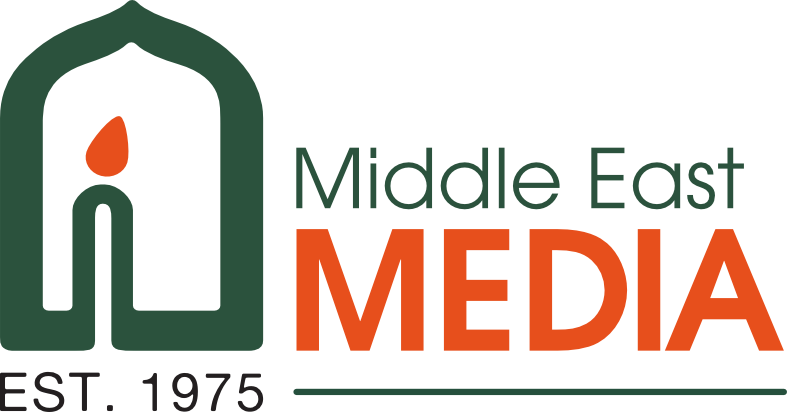MEM first responded to the Great Commission (Matthew 28) by not only ‘sending’ and ‘making disciples’, but by using the growing influence of media. And this was inspired by a meeting in a local church.
It all started with George Verwer’s ambitious vision in the 60’s to mobilise the Western church for the task of world evangelisation. George went on to set up Operation Mobilisation (OM), today an international mission agency sharing the Gospel worldwide. At a similar time, a young Christian, called Terence Ascott, was introduced to OM through his local church in the UK. With George’s encouragement, Terry saw potential in the written word and subsequently, established the Christian Literature Agency in 1967, using his home church as the base for this. Over the following couple of years, he went on to publish over 2 million tracts for use on university and college campuses across the UK.
Terence and Jacqueline married in 1972 and soon joined OM for a year, but eventually stayed in missions for much longer. During their time of service in Austria, they heard about the overwhelming needs in the Middle East. Only 0.01% of all missionary work was focused there.
In 1973, they moved to work with OM’s Arab World Team, based in Lebanon. In 1974, a small part of the team, including Terence and Jacqueline and led by John E. Ferwerda from the USA, formed a separate department to produce Christian literature for distribution through secular channels in the Middle East. In 1975, this became a separate legal entity, called MEM.
Writing and creating visuals for this new team, inspired by God, became their way of helping fulfil the Great Commission in the Middle East.
MEM’s own literature in Arabic, as well as that translated from other languages, was widely distributed in the Arab world – through book fairs, universities, supermarkets, hospitals, health clinics and even hairdressing salons. In fact, it quickly became one of the largest distribution programmes for Christian literature in the region.
The content of everything that Middle East Media produced, whether literature or, later, through videos, always sought to break down commonly held myths and misconceptions about the Christian faith in the Middle East. These barriers of darkness keep Middle Easterners from being able to receive the Gospel. But once they are removed, people are more likely to accept Christ.
Middle Eastern church and their mission to their own people
Most churches in the Middle East are not allowed to be overtly evangelistic; in some countries they are only permitted to exist to support Christians, coming from a Christian background. They cannot be seen to be evangelising or supporting new believers from a different religious background. This is a massive tension that our brothers and sisters live with in this region. Acting directly on the command of Jesus in the Great Commission would most likely result in severe persecution, imprisonment or even death in some countries.
However, some churches in the region have shown great courage in welcoming new believers. But sadly, it is not uncommon for Christians, born into Christian families, to be suspicious of new believers from a different background. In the past, some have recanted and gone back to Islam, even publicly accusing the church of having encouraged them to convert to Christianity. Some have been exposed as working for the authorities, in the hope of accusing the pastor of seeking to convert non-Christians. Others have converted to get help in emigrating, or other support. Therefore, many new believers are not easily accepted into existing churches.
Parts of the Church in the Middle East continue to need some help from the Western church in discipling the exciting increase in the number of new believers, but let’s look at how ‘the help’ has now changed.

“Brokers of opportunities”
Our friend, Reverend Canon Richard Bromley, the Mission Director at Intercontinental Church Society reflects on the change:
The role of Western churches in mission in the Middle East has a long history—both good and bad. Today, the people we serve and the world they live in are dynamic, developed, creative, aspirational, and modern. Our role is different; we still have one, but it is clearly not more of the same. The ability to adapt has been a defining trait of the Christian church through the centuries. At our best, the role Western mission plays now is transformed from what it was.
I believe the biggest change is in our posture—how we engage with the people and communities of the Middle East. We move:
From sender and receiver to partners.
From giving and receiving to creating together.
From providing the experts to discovering the wealth of skill, energy, and creativity already present.
From assuming we know what should be done to learning together.
The phrase that runs through my mind as I reflect on our role is that of being brokers of opportunities—ultimately, creating opportunities together for people to encounter the life-changing love of God in Christ.
The Role of the Global Church
Over the decades, we have included and consulted with global church leaders on every important decision we made at Middle East Media. However, not everyone in the church thought progressively and did not always quickly embrace the bold visions that MEM leadership had. As this was clearly shared in MEM’s 1984 Annual Report:
“With global broadcasting technology changing rapidly, we have to look to the nearer-than-we-think future, when it will be as easy to send Christian TV into the Middle East as it currently is to penetrate the area with Christian Radio! When this day comes, what will we have to broadcast? More subtitled American films? Or something written by Arab Christians to speak meaningfully to the interests and spiritual needs of other Arabs, heart to heart? Our goal is to begin soon and, with God’s help, to be ready for unprecedented opportunities to share the Good News in a region so long insulated from global missionary endeavours.”
MEM saw that satellite TV broadcasts in the future would bypass government censorship, allowing direct access to millions of non-Christian viewers, and that TV and video would fast become the two most influential sources of information and entertainment. However, many Christian and church leaders could not see this, as TV was seen as too secular and entertainment based.
But the Western Church was great at sending and supporting missionaries abroad. And these expat missionaries made up most of MEM’s staff in the early days. Gradually, MEM hired more local Christians to further develop the ministry. Today we have only one American missionary in the Middle East, who happens to be our International Director, Wayne Larson.
The Role of Churches in the life of Middle East Media
MEM UK was founded in 1975, and the support base was founded on prayer. Rev John C. Doble as the first Chair with his wife, Edna W. Doble, as the first Secretary, were running MEM’s UK operations from their vicarage home in Hove, England.
By 1980, twenty-five churches in the UK had linked up with MEM, many of whom gave generously. Since then, dozens of UK churches have supported our work for various lengths of time. Today, in 2025, we want to acknowledge and thank seven UK churches in particular who have been providing robust support – not only financially, but also through prayer, encouragement and their friendship.
1. Trinity Church, Buxton
2. St Paul’s Church, Kingston
3. St Mark’s Church, Battersea Rise
4. St George’s Church, Stamford
5. The Church of the Good Shepherd, Romford
6. SDR Churches, Stanton-by-Dale
7. Holland Road Baptist Church, Hove
Churches in Sweden (through their mission agency, Interact), Germany (Evangelical Lutheran Church in Württemberg) and Norway (through the Norwegian Mission Society) have provided incredibly generous support – financial and governance – in the development of Middle East Media, and continue in their support today.
In the USA, there are over 100 churches who have supported MEM’s mission over the last 20 years. We won’t be able to name them all, but we want to thank Chapelstreet Church, Illinois, for their longest partnership, one that continues until today. There are some church communities which started their support some 30-40 years ago, for very specific staff needs, and still continue their support today. Some of these include First Evangelical Free Church in Wichita and Garden Valley Church, both in Kansas, US. We want to thank them all for their commitment and faithful, generous support.
The experience of a Church Partner
Trinity Church Buxton is one of our longest-serving church partners in the UK. The Frohwein family with three young children from this congregation felt called to mission and served with our team in North Africa from January 2002 until July 2005. The church fully supported them during their overseas service and after they came back and continued working for MEM. The partnership between MEM and Trinity Church has continued even after the family is no longer part of the church.
“Our relationship with Middle East Media has opened our eyes to many needs and we have sought to take a prayerful interest in some of them. Most notable would be the resources produced to help traumatised children, the work to tackle the horrors of women who are sold into marriage without their consent and MEM’s ongoing work of training emerging media teams in a number of countries,” shared David Barnsley, Acting Senior Minister.
“It’s been a particular joy over the last few years to get to know some of the staff on MEM’s UK team. We have enjoyed their contributions on zoom at a number of our prayer meetings and several visits to see us in person and share fellowship over food,” reflected John Tromans, missions coordinator. “We have in our church family a gentleman whose father was an Iraqi and lived in Iraq until he was 8 years old. He and his wife are looking forward to visiting this year, to see first-hand some of the work in which MEM are engaged.”
Becoming MEM’s partner
The support and engagement of churches is vital to MEM’s existence.
There are about 38,500 churches in the UK, and 380,000 churches in the US. We would love to see more churches engaged in our mission to the Middle East. It is not only the finances that are needed, but the prayer and encouragement, and people willing to serve. When things get tough – we need the Body of Christ to stand with us. And only with the support of His people, we can know His will and be effective in our ministry.
We, in the West, also need our brothers and sisters from other parts of the world to help reignite our faith. This is how we grow together as the Body of Christ. And this is what the partnership with MEM and your Church could achieve – growing together to become more like Him.
Will you and your church community join us?


